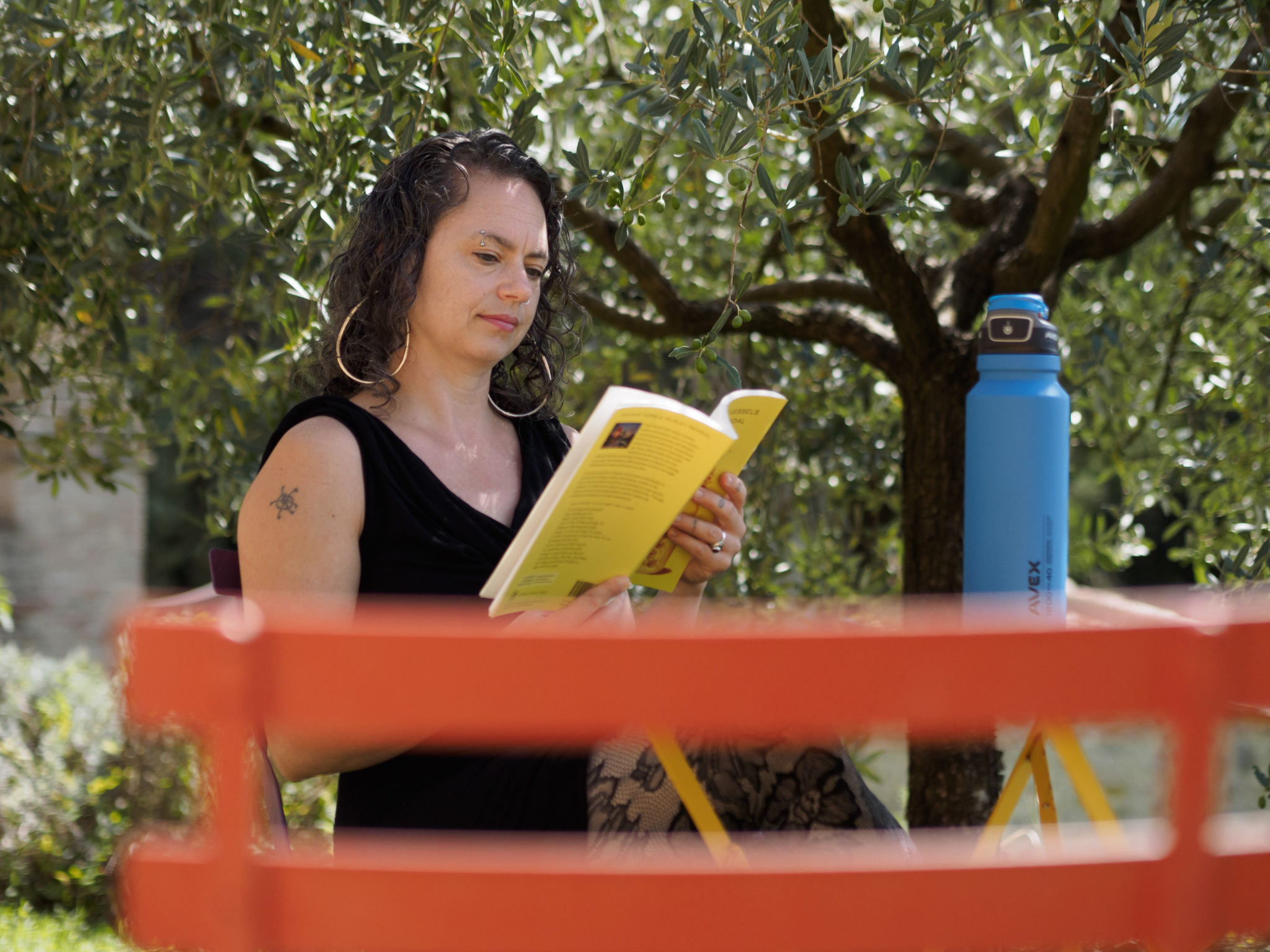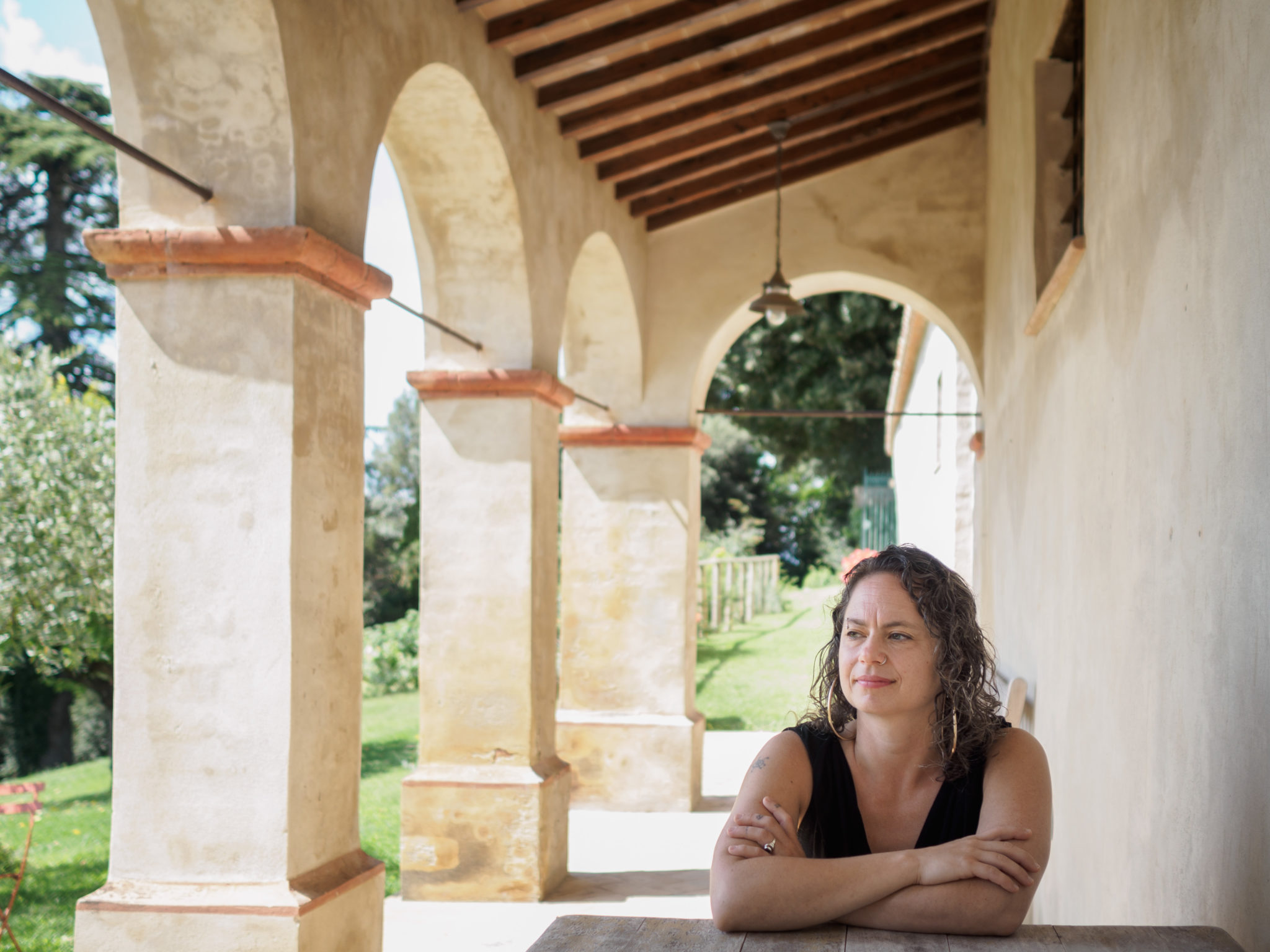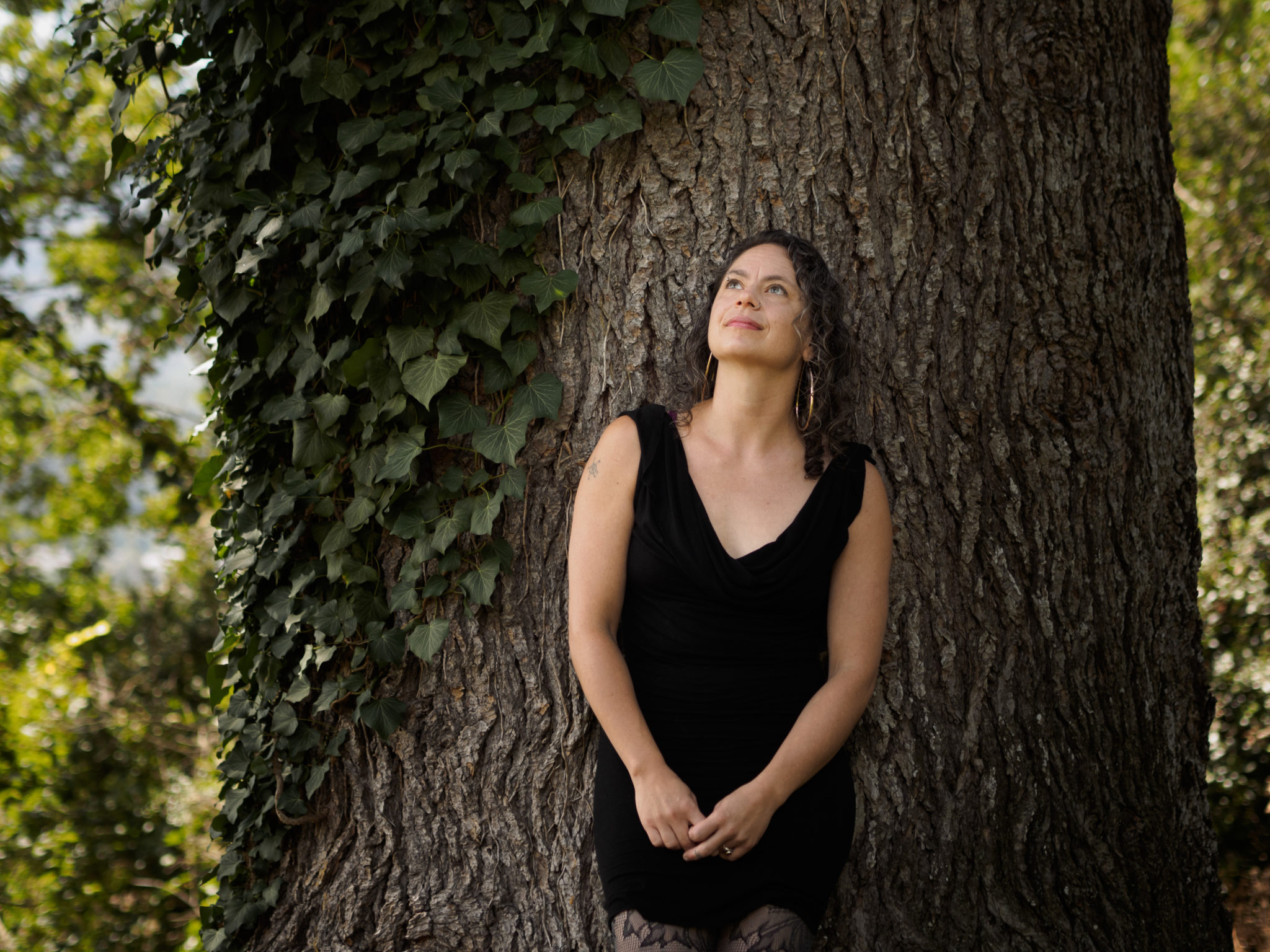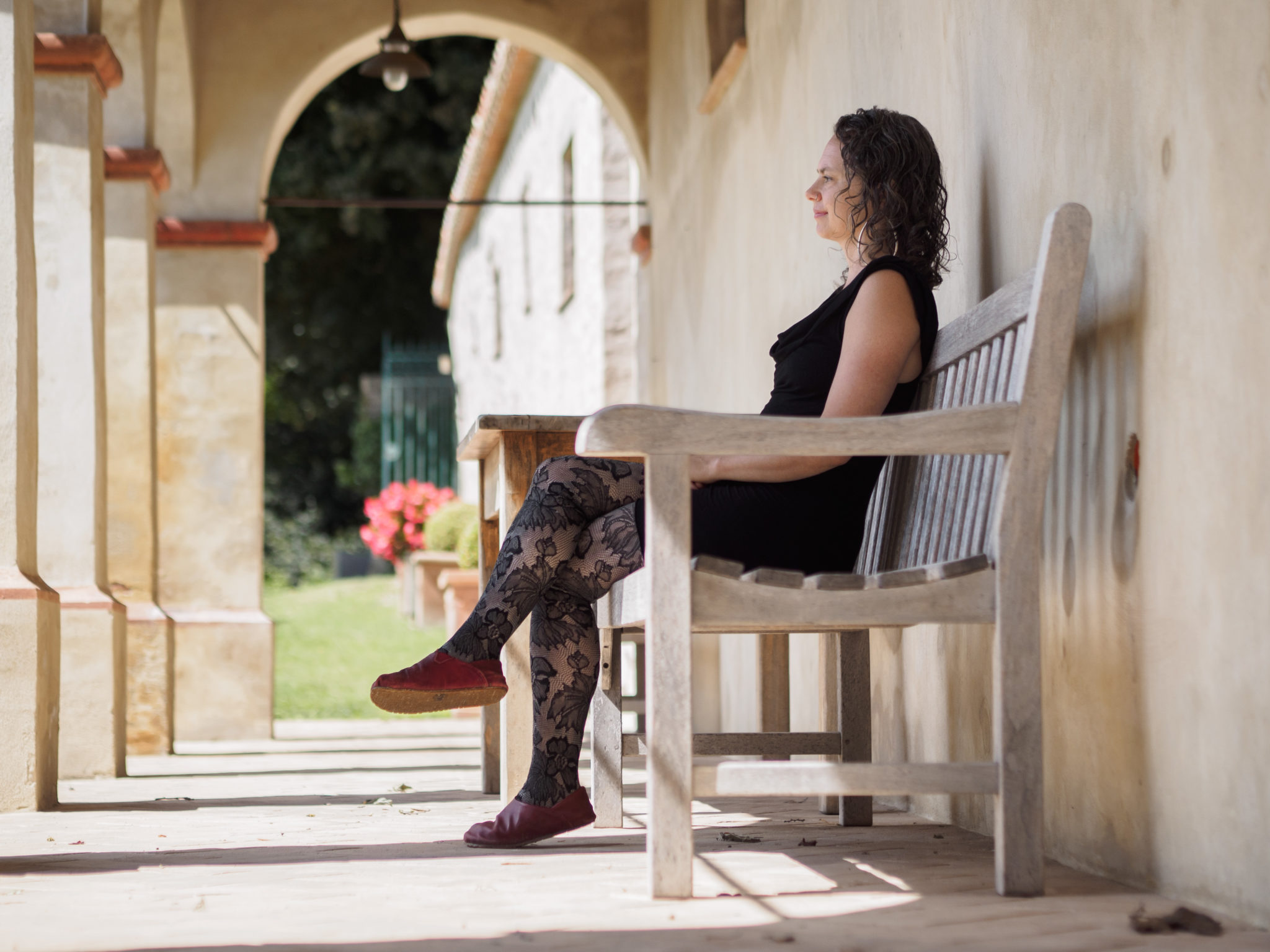Emily Van Kley
During my six weeks at Civitella, I read and wrote obsessively. I assembled my second poetry collection and created what would normally be at least six months’ worth of new work. I was able to maintain my aerial acrobatics practice, training at a theater in Umbertide, and made substantial progress on a hybrid poetry/ aerial performance I’ll be showing early next year. Shared meals, outings, and games of foosball with the other Fellows were a crucial break from the intensity of the work, and offered inspiration for new poems, along with friendships that will last a lifetime.
Del Parto
-after Piero della Francesca,
for Azar Nafisi & Dana Prescott
An egg-pale madonna
is chipped from the walls
of a burned church.
She’s pregnant, her gown
slit at waist and hips to allow
the requisite swelling.
Beneath her, a nursing
madonna, damaged
in the removal. A few
scraps of face recovered,
skin a more probable color.
Some hands. Lump
of child. Lately, a war
contractor’s developed
a technique to peel
frescos from the plaster
they’re affixed to, leaving
previous layers intact.
For water damage,
antibiotic injections.
For cleaning, a mixture
like salad dressing. A fresco
can last forever if moisture
––and earthquakes––
are kept at bay.
Before the madonna,
this building housed
a school for fascists.
Strange bedfellows:
but even fascism
has its mystics, the idea
being that conviction
of one’s inherent superiority
requires something illogic,
akin to faith. Now, pregnant
women come to plead
for safety as they split
from one being to two.
I don’t mean to equate
religious belief with
depraved thought, action.
I only mean it’s terrible
how harm is so often
layered with healing.
In this annunciation,
Mary––still several shades
unlikely––keeps a finger
pinched in a book.
When the angel appears
with its un-toward assertion,
she frowns, wants to get back
to her chapter. Meanwhile
the internet argues
over whether she was
a teenager, because
the friend of a pedophile
running for senate says
there’s nothing immoral
or illegal in the candidate’s
appetites––a little unusual,
but don’t forget Mary,
a teenager, and Joseph,
a man. Azar tells us
governments come and go
but art remains, and every
culture has a right to change.
Whatever Mary’s actual
circumstance, she did not
read Renaissance literature.
Still, I like those pages folded
around her finger, the life
of the mind she’ll return to
when the miracle is done.



